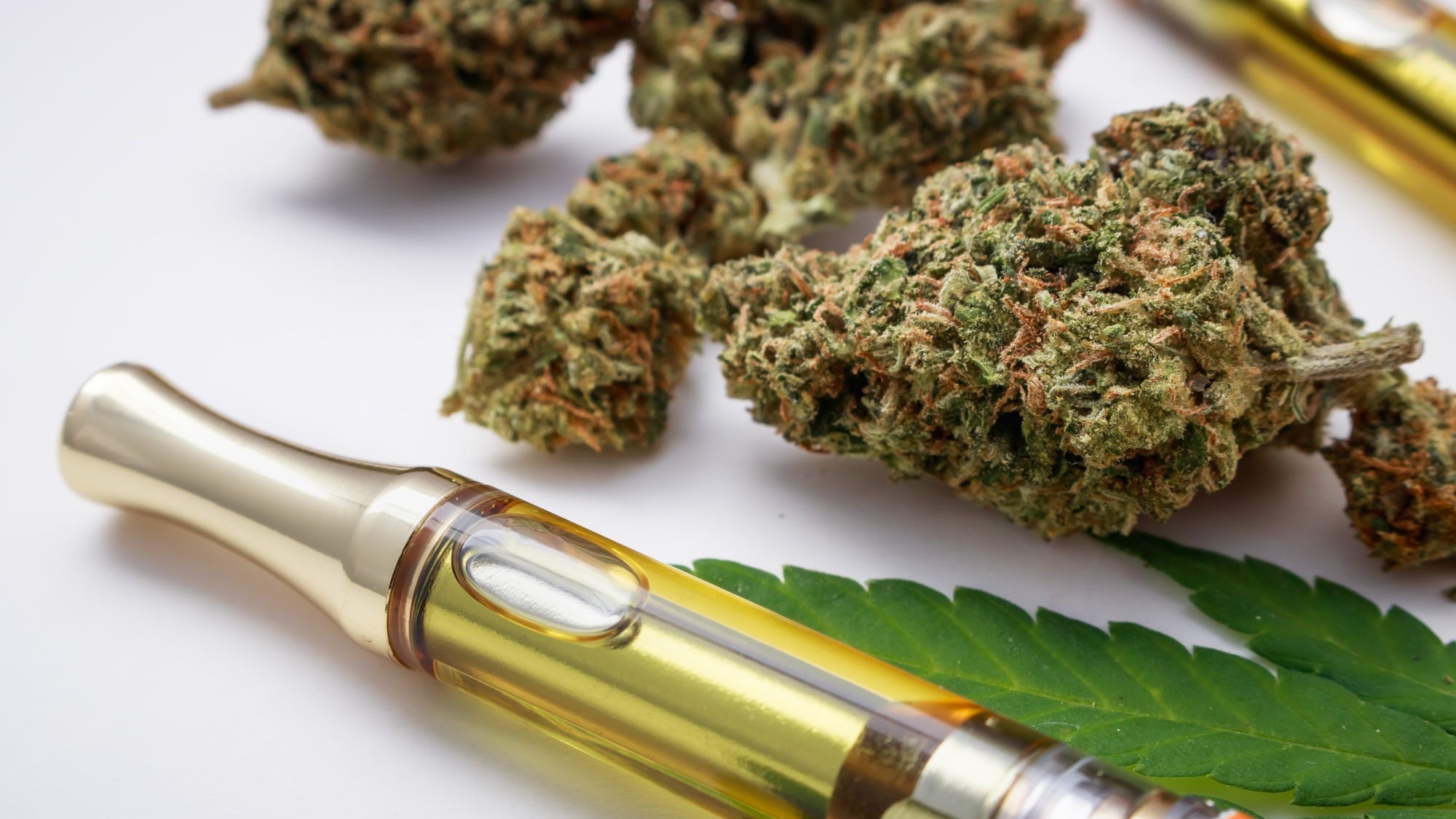
A Game-Changing Meeting at the White House
On July 11, 2025, the White House became the stage for a pivotal moment in the ongoing saga of marijuana policy reform. Former NFL star Ricky Williams, now a prominent advocate for cannabis legalization, met with top Trump administration officials to discuss rescheduling marijuana under federal law. This high-profile meeting marks a significant step in the push to reclassify cannabis from a Schedule I to a Schedule III substance, a move that could reshape the landscape of the cannabis industry, from Marijuana Online platforms to Marijuana Wholesale markets. Williams, co-founder of Project Champion, brought his personal journey and professional insights to the table, emphasizing that this reform “isn’t about politics—it’s about freedom.”
From Gridiron to Advocacy
Ricky Williams, once a celebrated running back for the Miami Dolphins, has long been a polarizing figure due to his vocal support for cannabis. His NFL career was marred by suspensions related to marijuana use, which he openly used to manage pain and stress. After retiring, Williams transformed his personal experiences into a broader mission, advocating for cannabis as a tool for wellness and economic opportunity. At the White House, he met with senior staff from the U.S. Departments of Agriculture, Housing and Urban Development, Energy, and the White House Counsel’s Office. His message was clear: rescheduling marijuana could unlock new possibilities for individuals and businesses alike, including those in the burgeoning Marijuana White Label sector, where companies create branded products using third-party suppliers.
The Push for Rescheduling
The discussion centered on moving marijuana from Schedule I, where it sits alongside drugs like heroin with “no accepted medical use,” to Schedule III, which includes substances with moderate to low potential for dependence. This reclassification, initially proposed under the Biden administration, has been stalled for six months under Trump’s tenure, as noted by the Drug Enforcement Administration (DEA) in a recent update. Williams highlighted the urgency of this reform, pointing out that over 90% of the 40,000 public comments received during the DEA’s review supported rescheduling or descheduling cannabis entirely. For businesses involved in Marijuana Online retail, this shift could streamline operations by reducing legal risks and improving access to banking services.
A Coalition of Voices
Williams wasn’t alone in his advocacy. He’s part of the “Coalition of Athletes and Entertainers Supporting President Trump’s Policy Objectives,” which includes heavyweights like Mike Tyson, Kevin Durant, and Allen Iverson. This group sent a letter to President Trump, urging three key reforms: clemency for nonviolent marijuana offenders, support for rescheduling, and an end to discriminatory banking practices that hinder Marijuana Wholesale businesses. The coalition’s letter praised Trump’s past clemency actions, such as pardoning music producer Weldon Angelos in 2020, who served 13 years for a marijuana-related conviction. They argued that Trump could outshine Biden’s unfulfilled promises by taking bold action now.
Economic Implications of Reform
The economic stakes of rescheduling are massive. In 2024, the U.S. cannabis market was valued at approximately $30 billion, with projections to reach $50 billion by 2030. Rescheduling could open doors for Marijuana White Label companies to scale production and distribution without the constant threat of federal prosecution. Currently, cannabis businesses face significant hurdles, including limited access to banking due to federal restrictions. The coalition’s letter emphasized that ending these “discriminatory banking practices” would allow legal cannabis businesses to operate like traditional companies, fostering growth in Marijuana Wholesale markets and creating jobs in both urban and rural communities.
Political Momentum and Challenges
President Trump has shown mixed signals on cannabis reform. During his 2024 campaign, he endorsed rescheduling and supported a Florida measure backed by Trulieve, a major cannabis company. In a private meeting with House lawmakers in June 2025, he reportedly said, “We’ll be moving forward soon with rescheduling marijuana,” a statement that sparked optimism among advocates. However, the process remains stalled, with DEA Administrative Law Judge John Mulrooney pausing hearings since January. The appointment of Pam Bondi as Attorney General, who has historically opposed cannabis legalization, adds uncertainty. Yet, with 84% of conservatives supporting rescheduling, as noted by advocacy group stupidDOPE, the political momentum is undeniable.
Social Justice at the Core
Beyond economics, Williams and his coalition underscored the social justice implications of reform. Over 2 million Americans have been arrested for marijuana-related offenses since 2010, disproportionately affecting Black and Latino communities. Williams, reflecting on his own experiences, told Marijuana Moment, “I’ve seen firsthand how cannabis can change lives—not just for wellness, but for opportunity.” Clemency for nonviolent offenders, as championed by the coalition, could address these disparities. The letter criticized Biden for denying most marijuana-related clemency applications, urging Trump to leverage his pardon power, now bolstered by Alice Johnson as the new pardon czar, to deliver justice.
The Role of Celebrity Advocacy
The involvement of high-profile figures like Williams, Tyson, and Durant amplifies the conversation. Their platform draws attention to the need for reform, from Marijuana Online marketplaces to grassroots advocacy. Tyson, for instance, has been vocal about his personal use of cannabis for mental health, spending over $40,000 monthly on the substance. His Fox News appearance in June 2025 echoed Williams’ call for rescheduling, arguing that cannabis is a medicine, not a gateway drug. This celebrity-driven push contrasts with opposition from groups like Smart Approaches to Marijuana (SAM), which, despite acknowledging an imminent rescheduling decision, argues that cannabis should remain Schedule I.

Barriers to Progress
Despite the optimism, significant hurdles remain. The DEA’s new acting administrator, Robert Murphy, has not advanced the rescheduling process, and Trump’s nominee, Terrance Cole, awaits Senate confirmation. Cole has promised “careful consideration” of the issue, but his stance remains unclear. Meanwhile, Robert F. Kennedy Jr., the Health and Human Services Secretary, has deferred to the DEA despite previously supporting legalization. These dynamics suggest that rescheduling may hinge on Trump’s direct intervention, a point Williams emphasized in his post-meeting comments: “The Biden administration fell short on cannabis rescheduling, but we’re eager for our next conversation on moving to Schedule III.”
A Vision for the Future
As the cannabis industry evolves, rescheduling could catalyze innovation. Marijuana Online platforms could expand research into medical applications, while Marijuana Wholesale suppliers could stabilize supply chains. Williams’ vision extends beyond policy to cultural change, where cannabis is seen not as a vice but as a tool for healing and economic empowerment. His meeting at the White House, though just one step, signals a growing acceptance of this perspective. With 70% of Americans supporting legalization, according to a 2024 Gallup poll, the pressure is on for Trump to act decisively, potentially reshaping federal drug policy for generations.
Freedom Over Politics
Williams’ parting words to Marijuana Moment encapsulate the heart of his mission: “This isn’t about politics—it’s about freedom.” Whether through expanded clemency, rescheduling, or banking reform, the push for cannabis justice is gaining traction. As Marijuana White Label brands and Marijuana Wholesale markets await federal clarity, advocates like Williams are ensuring the conversation stays alive. The White House meeting may not have yielded immediate results, but it’s a powerful reminder that change is possible when voices from the gridiron to the boardroom unite for a common cause.
Discover premium cannabis solutions with D Squared WorldWide, a leader in Marijuana Wholesale excellence. Inspired by advocates like Ricky Williams, we’re revolutionizing the industry with top-quality, compliant products designed for Marijuana White Label success. Our scalable offerings empower businesses to thrive in the $30 billion cannabis market, projected to hit $50 billion by 2030. From cultivation to distribution, D Squared WorldWide ensures reliability and innovation. Join the movement for cannabis reform and economic opportunity. Schedule a call today to explore how D Squared WorldWide can elevate your brand in the Marijuana Online marketplace!
Reference:
1. Doonan, S., Johnson, J., Firth, C., Flores, A., & Joshi, S. (2022). Racial equity in cannabis policy: diversity in the massachusetts adult-use industry at 18-months. Cannabis, 5(1), 30-41. https://doi.org/10.26828/cannabis/2022.01.004
2. Mancini, C. (2022). Public support for “get smart” criminal justice reform post-2020: virginia as a case study. International Journal of Offender Therapy and Comparative Criminology, 67(12), 1230-1253. https://doi.org/10.1177/0306624x221086551
Mancini, C. (2023). Up in smoke: public attitudes toward the implementation of recreational marijuana legislation (rml). Crime & Delinquency, 71(2), 390-424. https://doi.org/10.1177/00111287231160734



